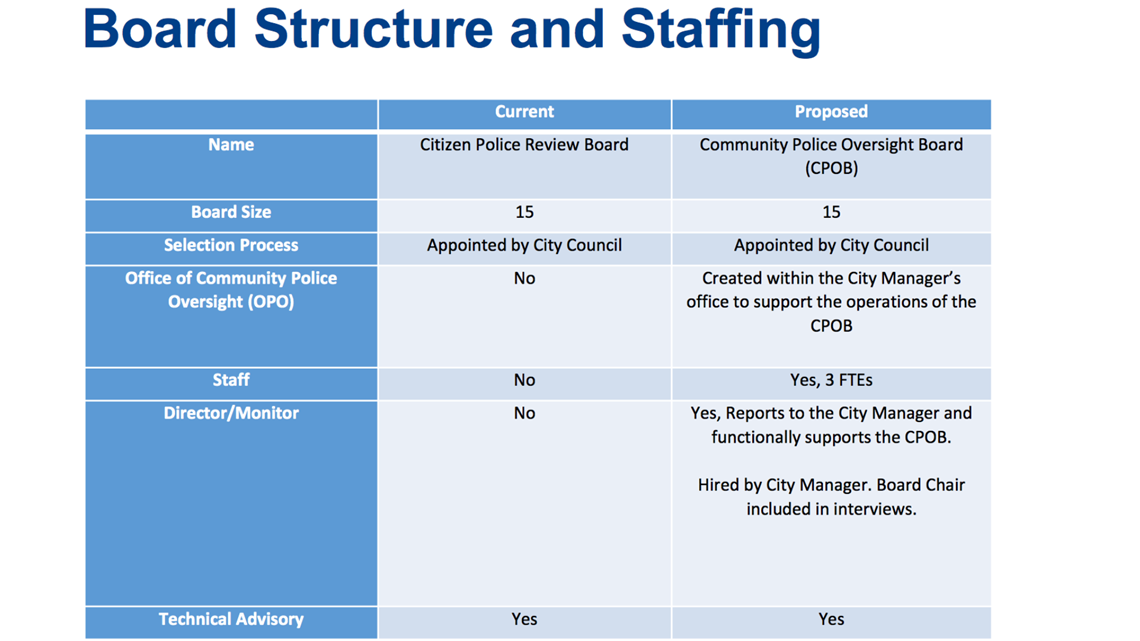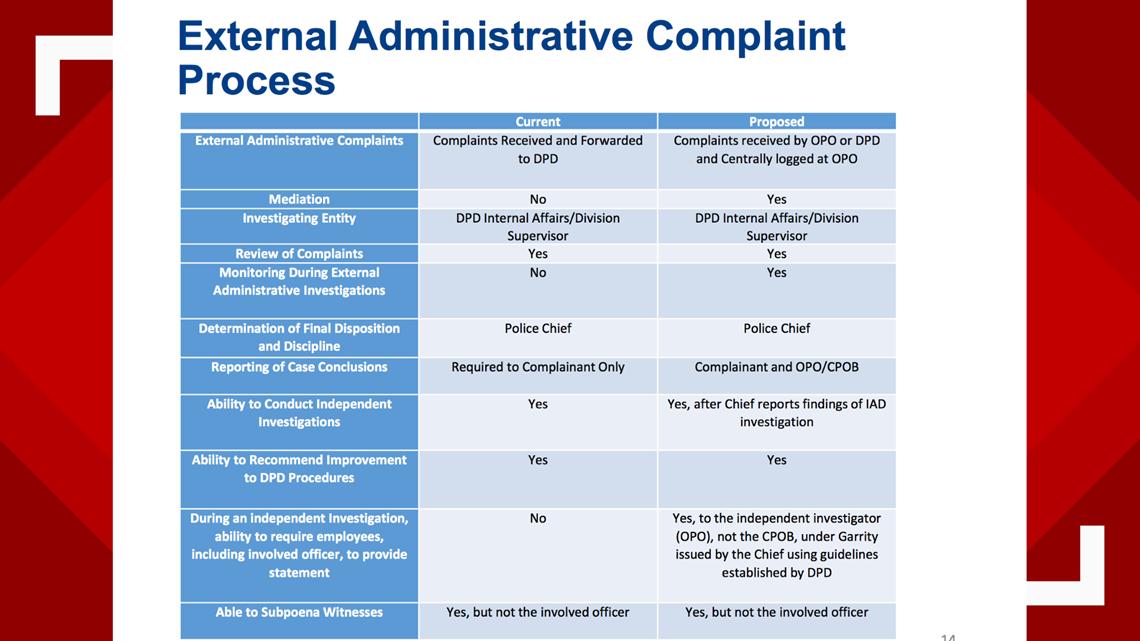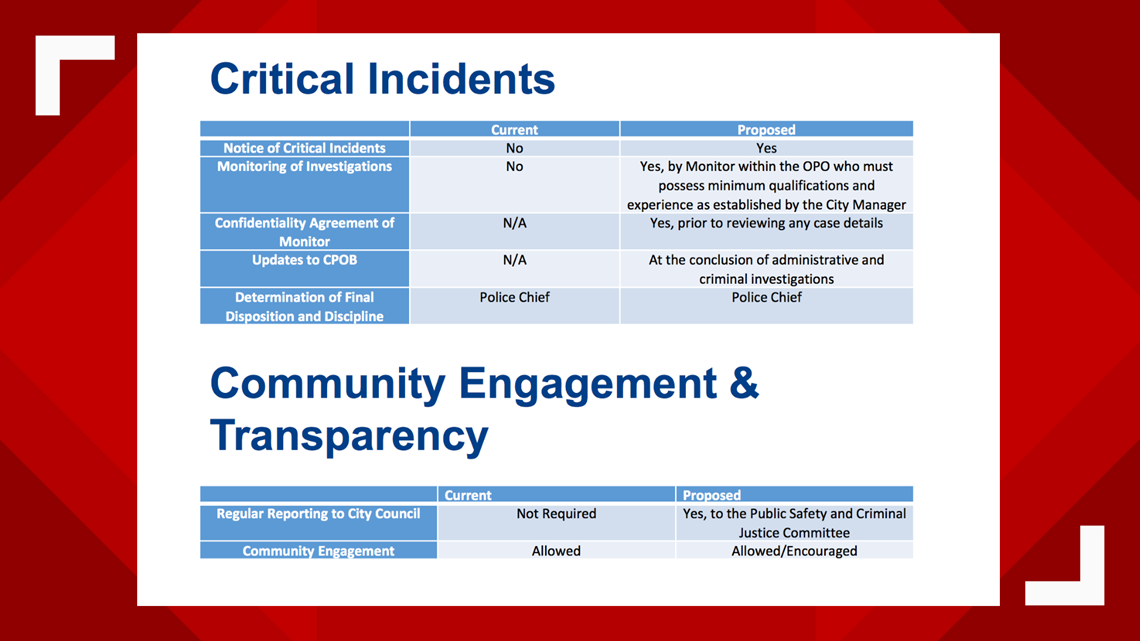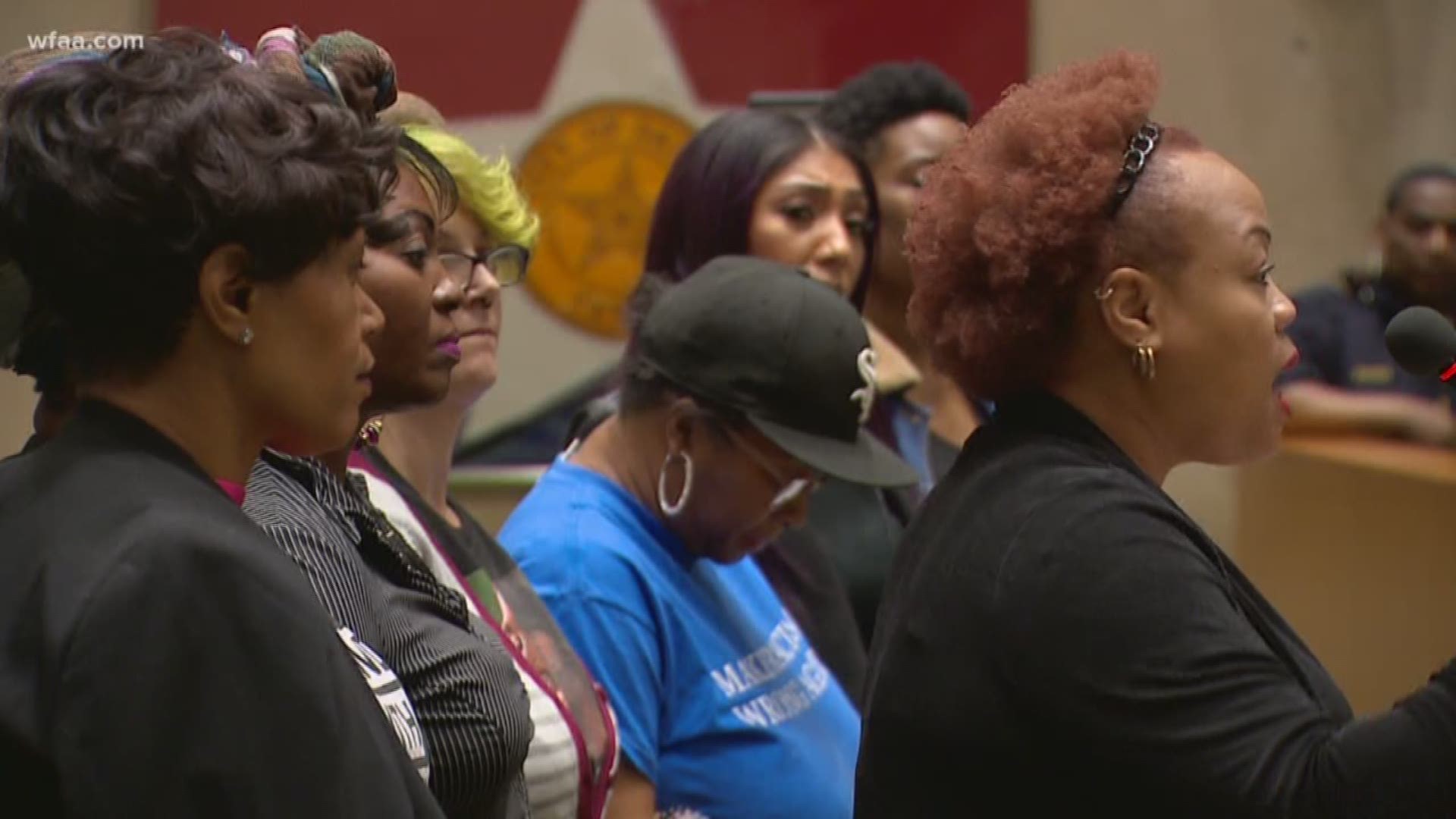Dallas police Chief Renee Hall on Wednesday presented her final recommendations for the police citizen review board to the City Council.
The board had been put in place as a way for citizens to voice their concerns about police behavior to city officials. But the board has been dogged by criticism – both from those who want more accountability for officers to those who want to ensure officers' rights are being protected.
Hall presented a list of recommendations in February, but they were met by opposition. Here are her final proposed changes to the board, as outlined in her presentation to the City Council on Wednesday:
• Name changed to Community Police Oversight Board (CPOB)
• Board size to remain at 15 members appointed by City Council
• Creation of the Office of Community Police Oversight (OPO) within the City Manager’s Office • OPO would include a staff of three
• OPO Director/Monitor would report to the City Manager and functionally support CPOB
• Maintain the current Technical Advisory Committee
• Complaints received by OPO or DPD are centrally logged at OPO (central intake point)
• OPO may recommend: Mediation, Internal Affairs Division (IAD) Investigation or Division Supervisor Investigation, Chief Maintains discretion on investigation track and timing
• DPD conducts IAD and Division Supervisor investigations
• OPO will coordinate mediation between complainant and DPD
• For referred Division Supervisor Investigations: OPO will be notified of completed cases
• OPO may monitor external administrative investigations conducted by IAD; Most common external complaints involve rudeness, unprofessionalism, and procedural violations; Will not be physically present in interview process, but may observe from separate room; OPO may request information, submit questions, and provide feedback
• Chief retains authority of final case disposition and discipline
• Chief will provide written report to CPOB regarding case conclusions
• CPOB may provide report to the PSCJ Committee
• CPOB retains ability to conduct independent investigations and recommend improvements to DPD procedures: During Independent Investigations, CPOB will retain current subpoena power for non-police officer witnesses; Statements from employees and officers who are subject of the investigation may only be provided to OPO under Garrity notice issued by the Chief in accordance with DPD procedures; Chief retains authority of final disposition and discipline.
DPD will provide notice of critical incidents to OPO/CPOB
• OPO Monitor: Has monitoring ability to observe interviews, receive briefing on case details, request information, and provide feedback; Must possess minimum qualifications and experience as established by the City Manager; Must sign confidentiality agreement
• OPO Monitor may provide update to CPOB: At conclusion of administrative and criminal investigations; Report may only address the completeness of the investigation
• Chief retains authority of final case disposition and discipline
CPOB, OPO, and DPD will establish metrics for transparency
• CPOB will provide annual report to Public Safety and Criminal Justice Committee
• CPOB will engage in community outreach; Creating community awareness about complaint process; Generating discussion about community & police relationships.
Here are more detailed explanations how the proposed changes differ from the current format:







